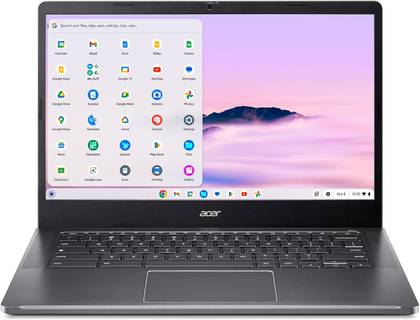Google has announced that ChromeOS and Android will become one unified operating system at some point in the future. That’s no small goal, and it’s going to have a knock-on effect for both hardware and software.
The big question is, as a ChromeOS user, what does this mean for you at the end of the day? While no one can say for sure, there are some implications here that range from obvious to likely.
Google’s Two Worlds Are Finally Colliding
In June 2024, a post on the Chromium Blog announced that “ChromeOS will soon be developed on large portions of the Android stack to bring Google AI, innovations, and features faster to users.”
This effectively merges much of the development of both operating systems, which in theory should benefit both Google’s development efforts and those of third-party software developers.
What the “Merger” Actually Is
Let’s clear up one thing: this isn’t a hostile takeover where ChromeOS disappears and Android takes over. It seems more like a foundation swap. Google is rebuilding ChromeOS so that it runs on Android’s core technologies—specifically the Android Linux kernel and its frameworks—while keeping the ChromeOS interface and core experience intact.
So I don’t expect that your Chromebook will suddenly start acting like an Android tablet or a Pixel phone. I expect that on the surface using these devices will be pretty much like using ChromeOS, but the technology under the hood will be built on Android.
How It Affects You
For Chromebook users, I think this is mostly good news. By merging the development resources of the two operating systems, we should see ChromeOS devices (which are pretty niche, you have to remember) get the same attention as Android in general. That means faster updates, bug fixes, new features, and overall a better experience. At least, that’s the idea.
ChomeOS devices today already run Android apps (for better or worse), Linux runs in a virtual machine on either operating system, and most of what people do is browser-based anyway. I’m sad that we’re losing stuff like the Steam Beta for ChromeOS (which I speculate is related to this merger, but don’t quote me on that), but ultimately it’s probably for the greater good.
What I actually think will happen in the end is that Chromebooks will feel even more like full-featured laptops. In spite of Google’s assertion that the Chromebook experience isn’t set to change. In the end, Android is the more complete OS from a functionality standpoint, and high-end Android tablets have been a thing for a while now. With just one platform to target, my hope is that we’ll get better apps on Chromebooks by virtual of both in-house and third part Android developers putting all their time into a single unified platform.
The Potential Challenges
One thing that isn’t clear to me is how Intel and AMD Chromebooks using x86 CPUs will handle this transition. As far as I can tell, based on some feverish internet searching, there is no official x86 version of Android. Which means the Android kernel will have to be officially ported to x86 for devices like my Chromebook Plus to work.
In fact, this might lead to fragmentation among existing Chromebooks, which was already an issue between Arm and x86 Chromebooks in the past. Of course, we’re living in the golden age of compatibility layers and virtualization. Still, as we saw with Microsoft’s ill-fated Windows for Arm experiment, just because it’s possible doesn’t mean you can pull it off.

- Operating System
-
ChromeOS
- CPU
-
Intel Core i3-N305
- GPU
-
Integrated Intel UHD Graphics
- RAM
-
8GB DDR5 RAM
- Storage
-
128GB SSD
- Display (Size, Resolution)
-
14-inch 1080p
Timeline and Future Outlook
Google has been pretty light on details when it comes to the timeline for this change. So far it’s more like an announcement of an intention than anything set in stone. As anyone who has been involved with any aspect of software development will tell you, this sort of transition is never smooth, and it never happens according to schedule.
That said, Google has officially announced the merger is coming “next year,” according to Chrome Unboxed. However, we’ll see if that turns out to be true.
The Best of Both Worlds—Hopefully
No one knows how this whole thing will shake out, or if it will even successfully happen, but I’m optimistic. I’ve always felt that ChromeOS was the stepchild of the OSes, and that it’s really the education sector keeping the whole thing afloat. If ChromeOS and Android share the same foundation, but Chromebooks keep the core experience the same, I think that benefits everyone.
It’s the teething troubles that worry me the most, but that’s entirely in the hands of Google and, of course, the various developers that make third-party apps and services for Android and ChromeOS.
So here’s hoping that by giving ChromeOS what’s effectively a heart transplant, Google can keep it alive and thriving. The alternative might be going back to cheap Windows laptops, or trying to find a Linux distro with the same security and simplicity out in the wild. Neither of those prospects thrill me.

